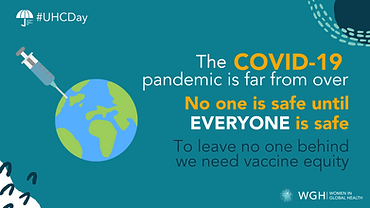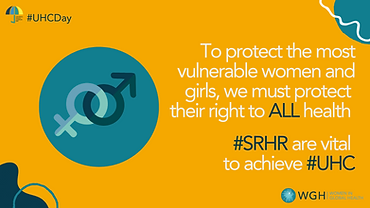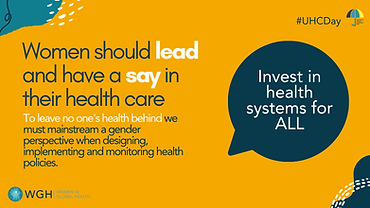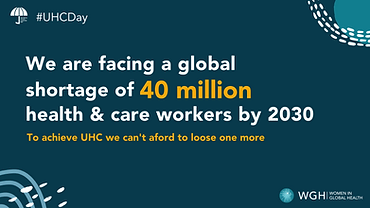Universal Health Coverage
Universal Health Coverage (UHC) means that all people have access to the health services they need, when and where they need them, without financial hardship. It includes the full range of essential health services, from health promotion to prevention, treatment, rehabilitation, and palliative care (WHO, 2019).
UHC will not be achieved anywhere without addressing gender equality, women’s rights and the role of women in the global health workforce. Women in Global Health are co-convenors of the Alliance for Gender Equality and UHC along with Women Deliver and Spectra Rwanda.
Since its inception, the Alliance has been successful in increasing awareness and interest about gender and SRHR in the UHC space through annual side events at the World Health Assembly and by building strong relationships with member states and delegates through negotiation processes.
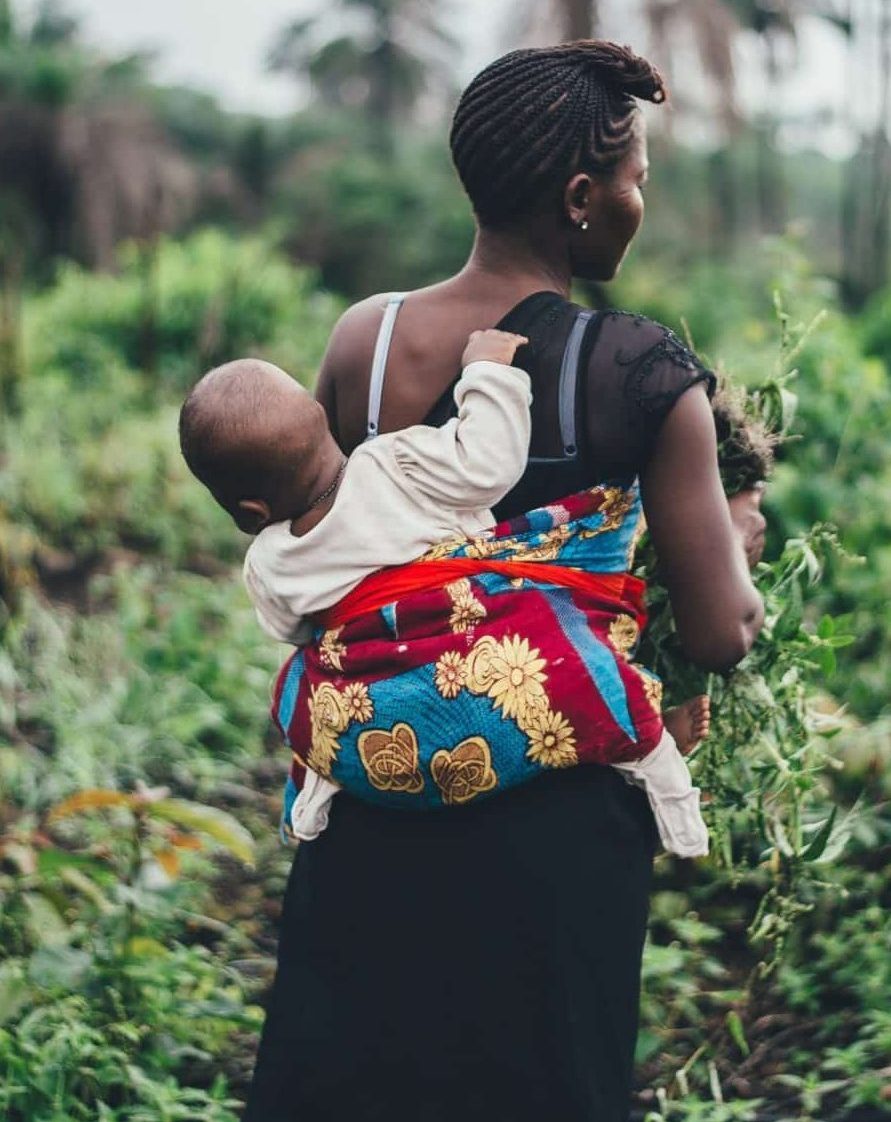
Seven Asks for UHC: Commit to Gender Equality and Women’s Rights
The Alliance successfully campaigned for UHC 2030 to expand upon their 6 key asks for Universal Health Coverage to include a 7th ask focused solely on gender equality, which has been included in all of their advocacy programming since December of 2019 in support of implementation of the agreement.
Gender inequalities and harmful socio- cultural norms limit realisation of the right to health for all. Evidence shows that gender equality and women’s rights are critical drivers of health, wellbeing, and socio-economic development, and that gender-responsive health services—in particular SRHR interventions—are health promotive, preventive, low cost, and cost effective. Governments must respond to gender-related health needs throughout the life course, as well as address discriminatory norms, laws, and information and finance gaps. Addressing gender equality in health systems’ design, financing, and delivery and in the health workforce, will drive the success of UHC.
The 7th Ask:
- Strengthen gender-sensitive health services that address gender-related barriers to health for people of all genders and secure women and girls’ equitable access to health, prioritizing the most marginalised women and girls.
- Include women from diverse groups (age, race, ethnicity, class, caste, disability, sexual orientation, gender identity, geography, health status) in equal numbers to men in UHC design, decision making, accountability and monitoring from community to global levels.
- Address in UHC the social determinants of health (including income, education, food security, environment, and punitive and discriminatory laws) that drive ill health based on socially constructed gender roles for people of all genders.
- Include comprehensive, essential services that are integrated, high quality, affordable, accessible, and acceptable to all girls and women throughout the life course; and incorporate sexual and reproductive health services free of stigma, discrimination, coercion and violence.
- Implement gender-responsive budgeting and monitoring for UHC and ensure equitable financing systems that are participatory, accessible, and minimise the greater burden of out- of-pocket payments faced by women over their life course.
- Value the role women play as 70% of the health workforce, including their role in unpaid care, and ensure decent work for women health workers that protects their fundamental rights, provides a fair income, and ensures a work environment free from violence, harassment and discrimination.
Join us to advocate for gender-responsive UHC
Advocacy tiles

